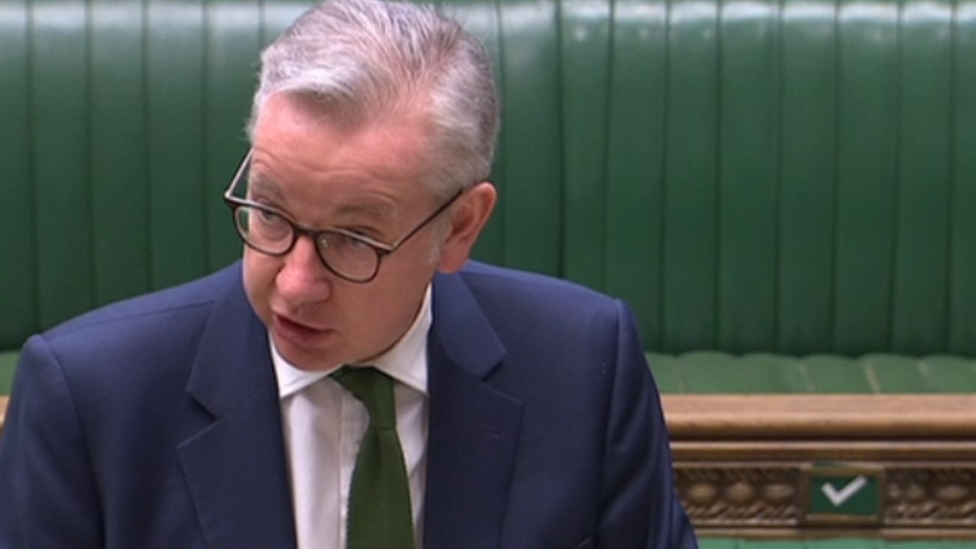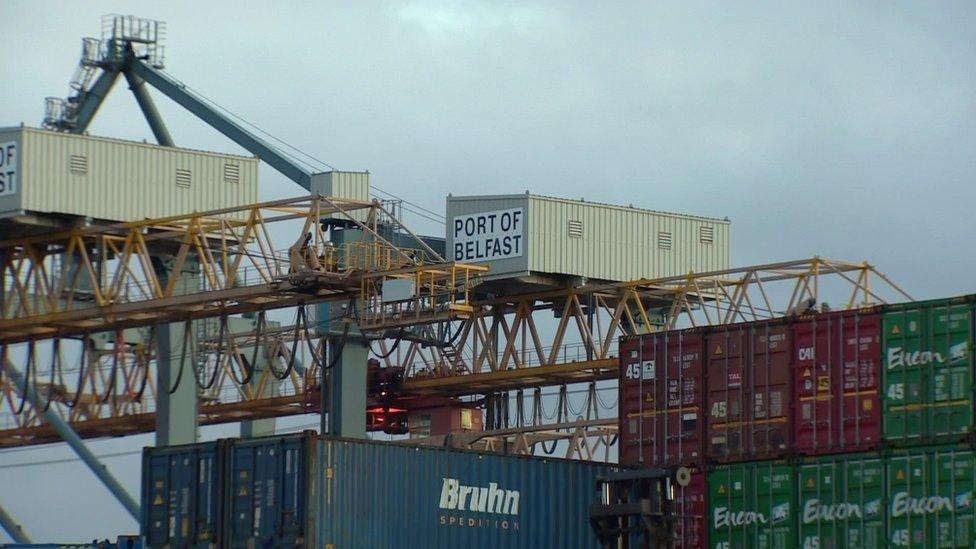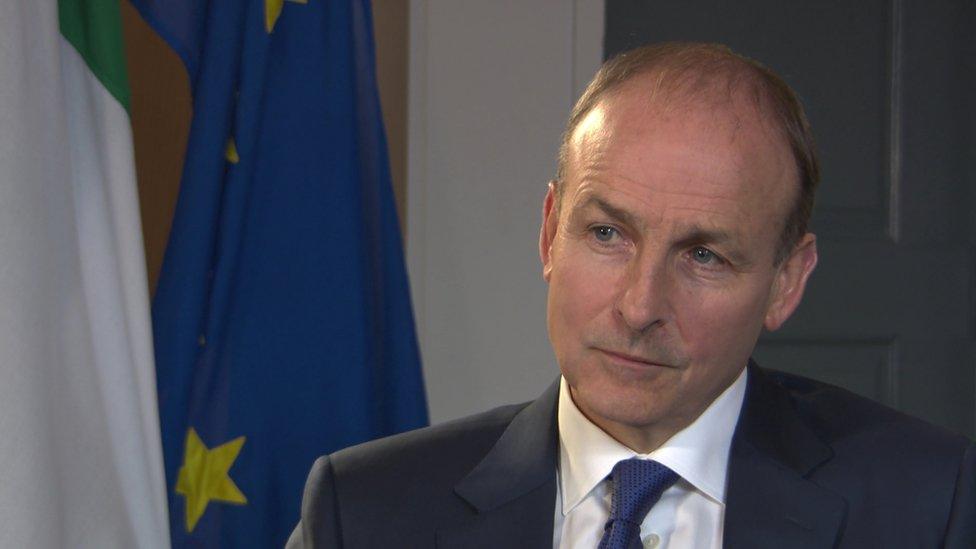Brexit: Get ready because this time it’s for real
- Published
- comments

Michael Gove made his statement to the Commons on Monday
The government has warned that the outcome of ongoing Brexit negotiations will not alter significant changes to trade with EU that business needs to prepare for.
"Customs declarations are complicated": That's according to page 8 of a 208-page government guide to importing and exporting after the transition period ends at the end of this year.
The document is dense, detailed and presents a daunting checklist for firms looking to be prepared for the biggest change to doing business with our largest and closest partner.
The government advises that companies hire an intermediary, such as a customs agent or a freight forwarder, to help them navigate the new requirements. Or they can buy special software and access to HMRC systems if they fancy doing it themselves.
Other requirements include applying for an Economic Operator's Registration and Identification Number, ensuring hauliers have the right driving licences and making sure their VAT accounting processes are ready for EU imports.
Very little, if any, of this is new.
What the government makes clear here is that there will be no last minute reprieve this time. Businesses used to hearing how they should rush to get ready only to have the reality postponed will get a nasty shock if they adopt that attitude this time around.
As the document makes clear: "The UK's negotiations with the EU will have NO IMPACT on the need to take these actions."

HMRC estimates that the cost to UK business of having to fill out 200 million additional annual customs declarations alone will be £6.5bn a year.
Many business groups have said this extra burden of time and cost comes at a moment when business is reeling from the impact of coronavirus disruption which has pitched the UK and the rest of the world into its deepest recession in living memory.
Testing times
In recognition of this, the government will phase in some of these requirements. For example, traders will have six months to file their customs declarations and pay any tariffs due.
Cabinet Office Minister Michael Gove, speaking in the Commons on Monday, insists that our departure from the EU heralds a host of new opportunities for increased trade with the rest of the world.
However, talks on a trade deal with the US have hit obstacles over food and animal welfare standards. And relations with China have hit a decade long low over the role of Huawei in UK communications networks and Beijing's fury at the UK government's offer of a route to UK citizenship for 3.5 million Hong Kong residents.
Many ministers accept that there will be short term disruption at least to the flow of business between the UK and the EU, but that is a price worth paying for control over our borders, laws and money.
The tone of today's advice is clear but the process of compliance will test many firms. What's also clear from the two 200 pages of detailed instructions is that any hope there would be less paperwork and red tape after leaving the EU seems misplaced.
- Published13 July 2020

- Published12 July 2020

- Published30 December 2020

